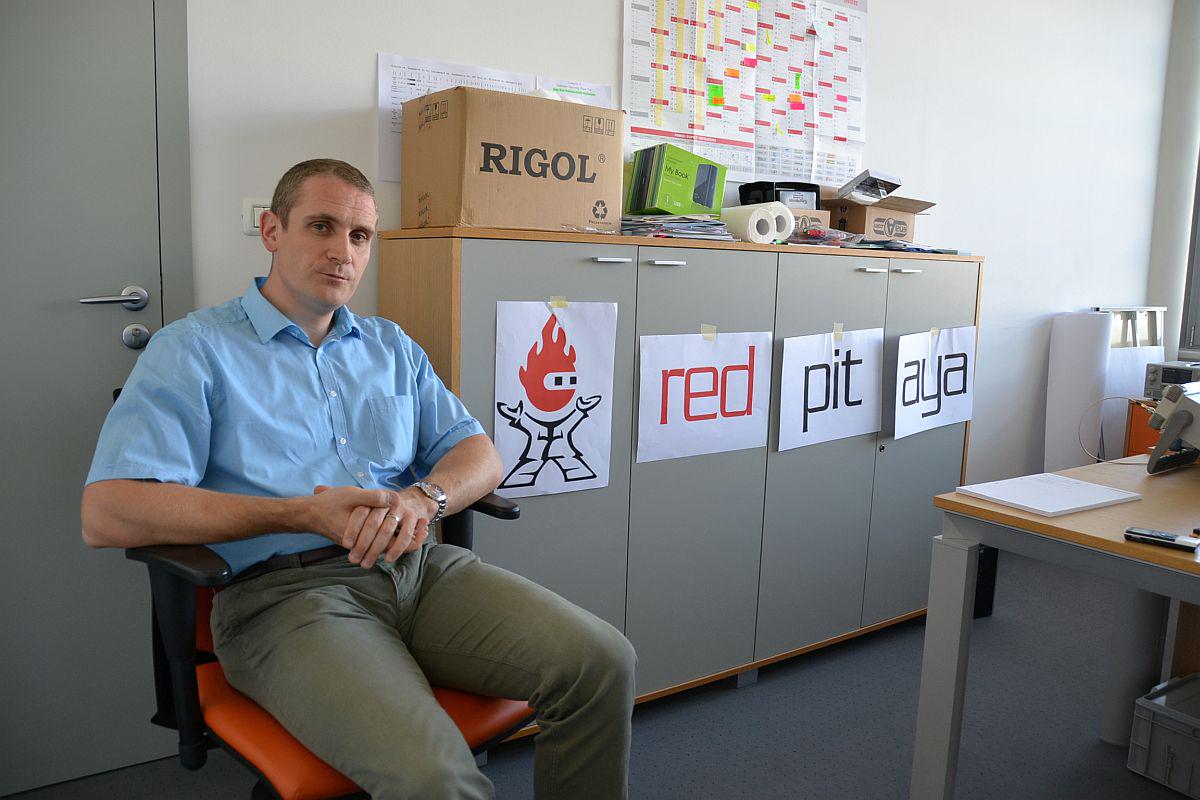
"Compared to bigger devices, the advantage is that we have a completely open-sourced system. That means that you can immediately process the signal that you catch with any algorithm you wish. At the same time bigger devices can only perform functions they were planned to perform."
The Solkan-based company Red Pitaya got off well at Kickstarter, where it managed to earn an enviable quarter of a million dollars seed capital with its product in just a couple of weeks. But the real challenges still lie ahead when the company hits the market at the end of the year.
What drove them to develop the little device was the idea to offer a little, compact, open-source product with the same functions that many bigger devices have to offer, and which can also be built into other portable devices, explains Borut Baričevič, one of the four members of the engineering team (also involved in the development of Red Pitaya are Aleš Bardorfer, Črt Valentinčič in Rok Uršič, while other IT experts also helped out).
"The goal is to enable the use of advanced technology in your home workshop. A signal generator like this for example (shows with his hand), which makes it possible to generate signals at higher frequencies than the Red Pitaya, stands at over 10.000 euros in the open market." says Baričevič. The group of four was driven by the idea to be able to offer the wider public technologies, before available only to advanced laboratories or industries.
"Compared to bigger devices, the advantage is that we have a completely open-sourced system. That means that you can immediately process the signal that you catch with any algorithm you wish. At the same time bigger devices can only perform functions they were planned to perform," emphasizes Baričevič. The frequency range can also be increased up to a couple of gigahertz, as the device has an ethernet port and two additional ports.
The company from Solkan is enjoying great success. The group didn't only manage to convince elite universities but also people on the World Wide Web. Their goal was to collect 50.000 dollars, however already at the beginning interest for their product is more than five times what they initially expected. People have already transferred 256.125 dollars to their account. »In the US one of the 8 Ivy League universities is showing interest for our product and plans to use it in its spring semester," says Borut Baričevič proudly.
"Compared to bigger devices, the advantage is that we have a completely open-sourced system. That means that you can immediately process the signal that you catch with any algorithm you wish. At the same time bigger devices can only perform functions they were planned to perform."

































































